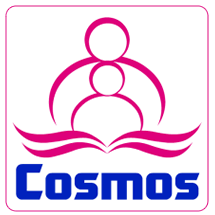TOPIC: WOMEN AND INFORMAL CROSS BORDER TRADE IN TANZANIA
DOI:
https://doi.org/10.53555/eijhss.v4i1.79Keywords:
Regional Integration, Border, Cross Border Trade, Informal TradeAbstract
As Regional integration continues to grow in Africa, trade is one of the factors that contribute to regional integration. In trade, mainly informal trade contributes to a large extent to regional integration in the cross-border areas. This study focused on the contributions of Tanzanian women in the form of informal trade to regional integration in the East Africa region. In spite of widely conceived variables promoting trade across Africa, women’s contributions have been rather neglected or undermined. Therefore, this study aimed to elicit various contributions of women to informal trade in Tanzania. It also analyzed different bottlenecks impending trade facilitations across trans-borders of Tanzania: security issues, financial challenges and payment of customs duties. Primary and Secondary data was be collected and analyzed from secondary sources through descriptive statistics (simple percentage).
References
. Allisa Ghils,(2013) “How to help women Cross-border Traders in Africa?” Bridges Africa, Vol.2, No.2
. Biswaro, J. (2012). The Quest For Regional Integration In The Twenty First Century: Rhetoric Versus Reality-A Comparative Study. Dar es Salaam,Tanzania: Mkuki na Nyota Publishers Ltd.
. Bussiness Dictionary, http://www.businessdictionary.com/definition/cross-border-trade.html (Accessed Feb.24,2018)
. Bussiness Dictionary, http://www.businessdictionary.com/definition/cross-border-trade.html (Accessed Feb.24, 2018)
. Collins English Dictionary, https://www.collinsdictionary.com/dictionary/english/border (Accessed Feb.24, 2018)
. Charmes, C.(2000) The Contribution of Informal Sector to GDP in Developing Countries: Assessment, Estimates, Methods, Orientations for the Future, paper presented at the 4th Meeting of the Delhi Group on Informal sector Statistics, Geneva 28-30 August 2000, Cited in ILO (2004) Economic Security for a Better World, Geneva
. D.L Garza (2006) “International Integration Theories”, International Journal STEM Education
. EASSI, (2012), Women informal Cross Border Traders: Opportunities and Challenges in the east African Community, An Action Research , Eastern African Sub-regional Support Initiative for the Advancement of Women (EASSI), Kampala-Uganda
. Frien N. Kerlinger, Foundations of Behavioral Research, (New York: Holt, Rinehart and Winston, 1986) 3rd edition
. Guba E.G, L.Y, Fourth Generation Evaluation, (Sage Publications 1989) Goldberg, P. K.
. Higgins, K. and Turner, L. (2010). “Integrating Poverty and Social Analysis into Aid for Trade Programs: Trade Facilitation and Trade-Related Infrastructure.” Brief 3, Department for International Development, London.
. Ityavyar,S.D,(2013).Women Cross-border Trader’s Challenge and Behavior Change communication. In P. Brenton, E. Gamberoni & C. Sear (Eds), Women and Trade in Kasaija, P.A (2006). Regional Integration A political Federation of East African Counties?
. African Journal of International Affairs, 7(1&2), 21-34. Africa: Realizing the Potential (pp59-76). World Bank, Washington, D.C.
. Kristof Titeca, Célestin Kimanuka, (2012) “WALKING IN THE DARK: Informal Cross-border Trade in the Great Lakes Region”, International Alert collaboration with UN WOMEN.
. Mwakisale L, E.T, Magai (2015), “Involvement in Informal Cross Border Trade:A case of Women Entrepreneurs in Tanzania”, Journal of Business and Economic, Volume 6, No. 8, pp.1522-1532.Academic star publishing
. Mashati Masinjila, (2009) “Gender Dimensions of Cross Border Trade in the East African) Community, Kenya/Uganda and Rwanda/Burundi Border”, African Trade Policy Centre, No.78
. Mbilinyi A. and Mutalemwa D.(2010). “Informal sector taxation in Tanzania: The economic and social research foundation”,
. Ogolo V. (2010). “Informal cross-border trade in EAC: Implications for regional integration and Development”, CUTS African TAKNET, Policy Brief Series No.12, available online at:
http://esrf.or.tz/docs/informationsectortaxationintanzania_12.PDF.
. Pavenik,(2003) N.L., J. Dev. Econ. 72 463-496.
. Regina Laub, Florence Tartanac and Cristiana Scarpcchi,(2016) “Crossing Borders: Challenges of Africa Women Involved in Informal Cross-border Trade,” Journal of Gender ,Agriculture and Food Security.
. Resource Centre, Nairobi, available online at: http://www.cutsgrc.org/pdf/BIEAC-RP10- How_Might_EAC_ Reduce_Negative_Implications.pdf.
. Schneider F. (2006). “Shadow economies and corruption all over the world: What do we really know?” Discussion Paper No. 2315, Institute for the Study of Labour (IZA). United Nations Conference on Trade and Development, http://unctad.org/en/Pages/DITC/Gender-and-Trade/Gender-Project-1617J.aspx, (Accessed 10th Feb 2018)
. Yusuff O, S. (2014), Gender Dimensions of Information Cross Border Trade in West-African Sub-Region (ECOWAS) Borders, International letters of Social and Humanistic Sciences, Vol.29, pp 19-33, Sci Press LTD Switzerland
. USAID (United States Agency for International Development). 2012a. “Women in Cross Border Agricultural Trade. ”Enabling Agricultural Trade Project (EAT), USAID, Washington, DC,
http://eatproject.org/docs/EAT_PolicyBrief_WomenCrossBorderAgTrade_Oct2012_FINAL457.pdf.
Downloads
Published
Issue
Section
License
Copyright (c) 2020 EPH - International Journal of Humanities and Social Science (ISSN: 2208-2174)

This work is licensed under a Creative Commons Attribution-NonCommercial-NoDerivatives 4.0 International License.







